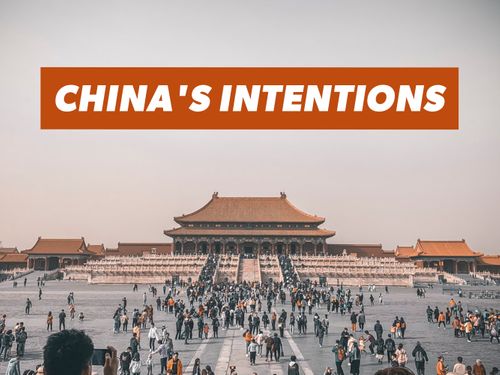What are China's real intentions?
Nov 06, 2020 · 2 mins read
0
Share

Successive US administrations, from Nixon to Trump, have had a policy of constructive engagement with China.
Save
Share
The idea of China’s ‘peaceful rise’ is perpetuated by Western policy experts, think tanks, academia, and even business. It allows people to profit from engagement with China without admitting the real nature of China’s intentions.
Save
Share
The consensus has been that China “will gradually evolve to more resemble America”. The growth of Western consumer brands in China such Starbucks, McDonald’s, and Apple seem to suggest China becoming a prosperous, peaceful and hopefully democratic power.
Save
Share
Michael Pillsbury, a China adviser to US governments since the 1980s, says this is a mistake. China has no intention of liberalizing, either politically or economically. In fact, as China grows richer, the Communist Party is likely to increase its power.
Save
Share
There is a moderate group of Chinese policy experts who go along with the ‘peaceful rise’ story. But to hard-core Chinese nationalists (known as ying pai – ‘hawks’ or ‘eagles’), the moderates don’t represent the real China.
Save
Share
These nationalists call for China to become the No. 1 economic, military and political power in the world by 2049, the 100th anniversary of the Communist Party coming to power.
Save
Share
This plan is known as the ‘Hundred Year Marathon’. A key part of the plan is that it must be denied: “the first rule of the Marathon is that you do not talk about the Marathon.” Yet the ambition is clear for anyone who cares to look.
Save
Share
China likes to play up its peaceful Confucian heritage, yet the country’s nationalists take their cue from the strategies of the Warring States period. The classic book from this period is Sun Tzu’s Art of War. It says: victory comes through patience, concealing intentions, and s
Save
Share
Initiatives such as the Belt and Road trade network and the Asian Infrastructure Bank also seek to buttress China’s power through investment and economic patronage. It’s a version of the old Tianxia system where states gave tribute to China in return for protection and order.
Save
Share
Chairman Mao had a favorite book, The General Mirror for the Aid of Government, from the Warring States period. It includes the quote: “There cannot be two suns in the sky.” For the nationalists this means: There can only be one hegemon, and by 2049 it won’t be the United States.
Save
Share
0
1 saves0 comments
Like
Comments
Share